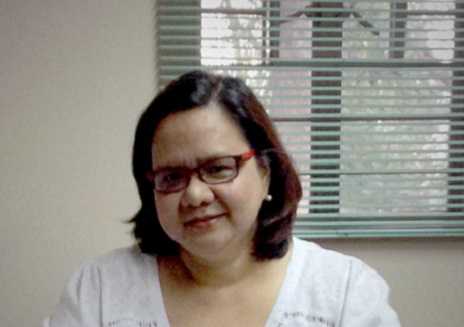
More than 30 years after soldiers serving the dictatorial regime of Ferdinand Marcos killed tribal leader Macli-ing Dulag, who opposed the construction of dams that would have flooded tribal lands, attacks on indigenous peoples have become more brazen in the context of heightening conflicts over resources.
Today, tribal communities face corporations that are grabbing ancestral domains and taking control of resources that are not only economically important to ethnic communities but sustain the very core of who they are and how they have lived for generations.
Opposing these aggressors in development are indigenous peoples out to defend their ancestral lands, their cultures, their lives.
Amid a reigning culture of impunity in the Philippines, however, remains the unsolved extrajudicial killing of women and children.
Victimes include the two children of Anteng Freay, a B’laan leader whose house was strafed by gunmen in August 2013; the 11-year old son of Subanen tribal chieftain Lucenio Manda, ambushed in September 2012; and Judy Capion, pregnant wife of tribal leader Dagil Capion, who died along with their two sons in October 2013.
The massacre of the Capion family was allegedly perpetrated by soldiers, and the case has not progressed because the crime scene was cleaned up before police investigators arrived.
The list is not exhaustive of tribal leaders and their families who have been hurt, harassed, or killed in recent years as they attempted to defend their lands and communities against corporate mining enterprises and other forms of development aggression.
Expressions of indignation and mobilization for political action to seek justice have not relented, mainly because of a lack of decisive action from the government.
These expressions of protest are critical steps, but the fight for justice will not be won if it is only to seek redress for the deaths.
This week, many will commemorate Macli-ing Dulag and protest against the killings of indigenous peoples, but may still continue to marginalize their life principles, their cultures and histories, which were their main motivations in defending their lands and community resources.
This marginalization, this refusal to understand an alternative paradigm borne out of indigenous people’s praxis, this failure to make those connections is what sustains corporate-led aggression in tribal communities and the culture of impunity.
Tribal peoples' lands -- and their way of life -- still seem distant geographies to many, especially from where they lead their lives in the urban centers.
People can remember Macli-ing Dulag and what he continues to stand for, and those who have fought for their ancestral lands against corporate domination and greed, with an expanded awareness of what their struggles and death represent; an awareness that can be inspired by buen vivir.
Vivir Bien or Buen Vivir, a Spanish word that can mean “living well, good life, knowing how to live, inclusive life, sweet life,” embodies the indigenous peoples of South America.
According to the article From Latin America to Asia, Learning from Our Roots: A Conversation on Vivir Bien (published in 2013 by activist think tank Focus on the Global South), this way of life should not be confused “as a utopian return to the pre-colonial past”, but be understood as a “merging of lessons from the past with those of today to build something new.”
This philosophy is in stark contrast to the way of life spawned by the capitalist system; living better is not brought about by living with more material things. The so-called right to development is questioned; the idea that the capitalist way is the only way to development is challenged.
Vivir bien is a way of life underlined by certain principles, such as “bio-society versus human society, humanism versus individualism, complementarity versus competition, harmony versus growth, integrality versus materiality,” which stress that the goal of humans is not to control nature but take care of it and that our place is not at the center, as we co-exist with nature.
In Bolivia and Ecuador, this principle is not just a proposition, but is already embedded in their constitutions.
This alternative paradigm also resonates in tribal communities in the Philippines. When a forum on buen vivir organized by Focus on the Global South took place in Manila last year, Subanen women who attended the event immediately explained it in their own terms; they were able to relate to the idea that humanity is not at the center of things.
They explained a practice called maguras, a ritual performed with the aim of asking permission from the guardian spirits to utilize Mother Earth’s resources.
They stressed that there should be no dichotomy between the practice of their culture and progress; that a good life for many can only be sustained if nature is not used in harmful ways. But for many who have been so habituated to a consumption-oriented, anthropocentric life, this view is strange, even laughable.
Even among the politically progressive sectors, tribal communities' perspectives are sometimes marginalized, their way of life as something to build on in engendering alternative paradigms are often not considered or become mere afterthoughts to give credence to claims of being democratic and politically correct.
Many in the Philippines still have a colonial way of thinking that indigenous people have a backward conception of life and the universe and to use their paradigm is some form of recidivism.
But like the Adivasi of India say about their egalitarian communities, where there is equality not only among humans but with humans and the forest, "We are not 200 years backward, we are 200 years ahead."
Clarissa V Militante works at Focus on the Global South and is the author of the novel “Different Countries” published in 2010.


